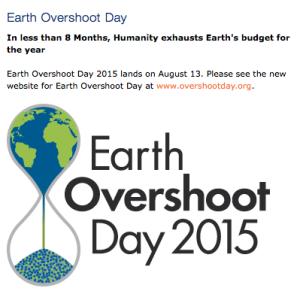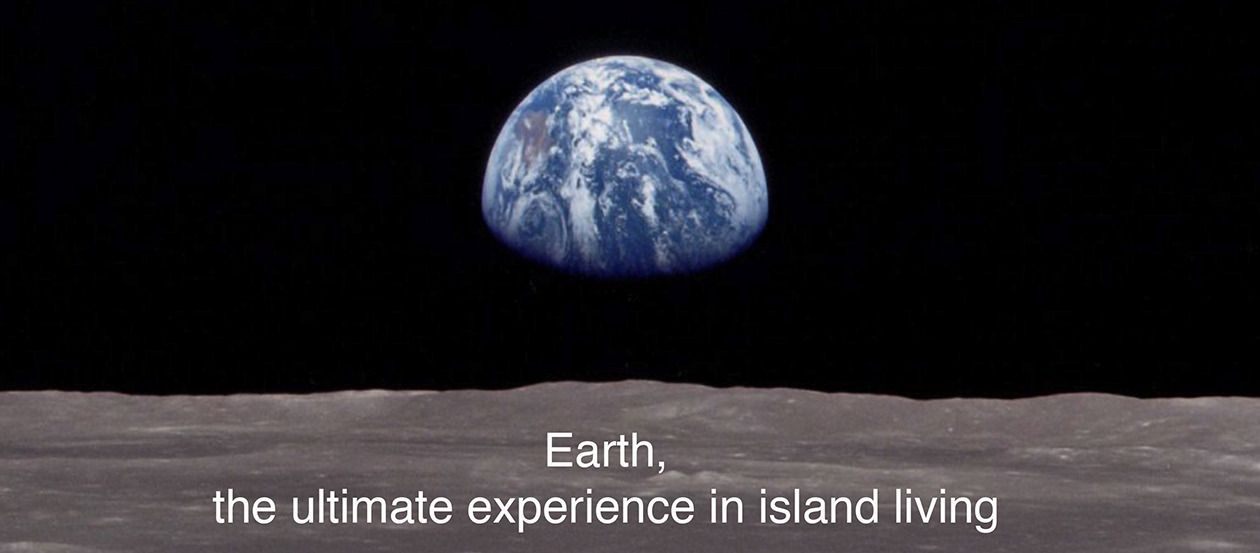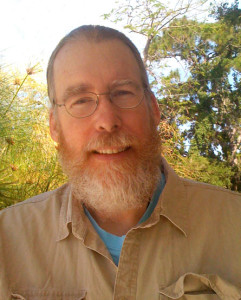Today, August 13th, 2015 is Earth Overshoot Day.
It is not a day of or for celebration but a day of grievous concern, for it clarifies the disconnect between the needs, wants and desires of humanity and the capacity and capability of the planet. There are 140 days left in the calendar year and yet we have already used up all of nature’s annual allotment.
The only way that human activity can operate relative to the planet for the next 140 days is to increase pollution or to degrade resources (thus limiting their capacity in the future). A third alternative is for people to do without basic needs either because they are not available or because they are not affordable.
We, humans, do not have a planetary perspective nor do we operate within the context of a planetary partnership. Our actions demonstrate a mindset that says we are above and apart from the planet on which we live and that provides us with the sustenance for our existence. That perspective is reinforced by the common tendency to use the “economy” is the primary determinant in our community value system.
“The idea of infinite or unlimited growth,which proves so attractive to economists, financiers and experts in technology . . .is based on the lie that there is an infinite supply of the earth’s goods,and this leads to the planet being squeezed dry at every limit.” – Pope Francis
Earth Overshoot Day is the date that demarcates the lie of unlimited growth.
I have three major concerns regarding Earth Overshoot Day. The primary one is that the day actually exists – that we are so out of balance with the planet that there is an Earth Overshoot Day.
The second concern is that Earth Overshoot Day is coming earlier and earlier in the year. In 1987, Earth Overshoot Day was December 19th. In 1995 it was November 21st. In 2000 it was November 1st. In 2005 it was October 20th. Last year it was August 19th and now it is August 13th. This is a trend that must be reversed until we have eliminated the reality of Earth Overshoot Day.
The third concern is that Earth Overshoot Day is one of the most critical news stories of the day – it not the most significant – that will receive virtually no news coverage on major commercial outlets.
We are a part of Planet Earth. We are a partner with Planet Earth. We are interdependent with Planet Earth, and therefore need to act in concert with the constraints of Planet Earth. Our relationship with Planet Earth is the determinant for humanity’s quality of life both now and for those who will reside in the legacy we leave behind. 

